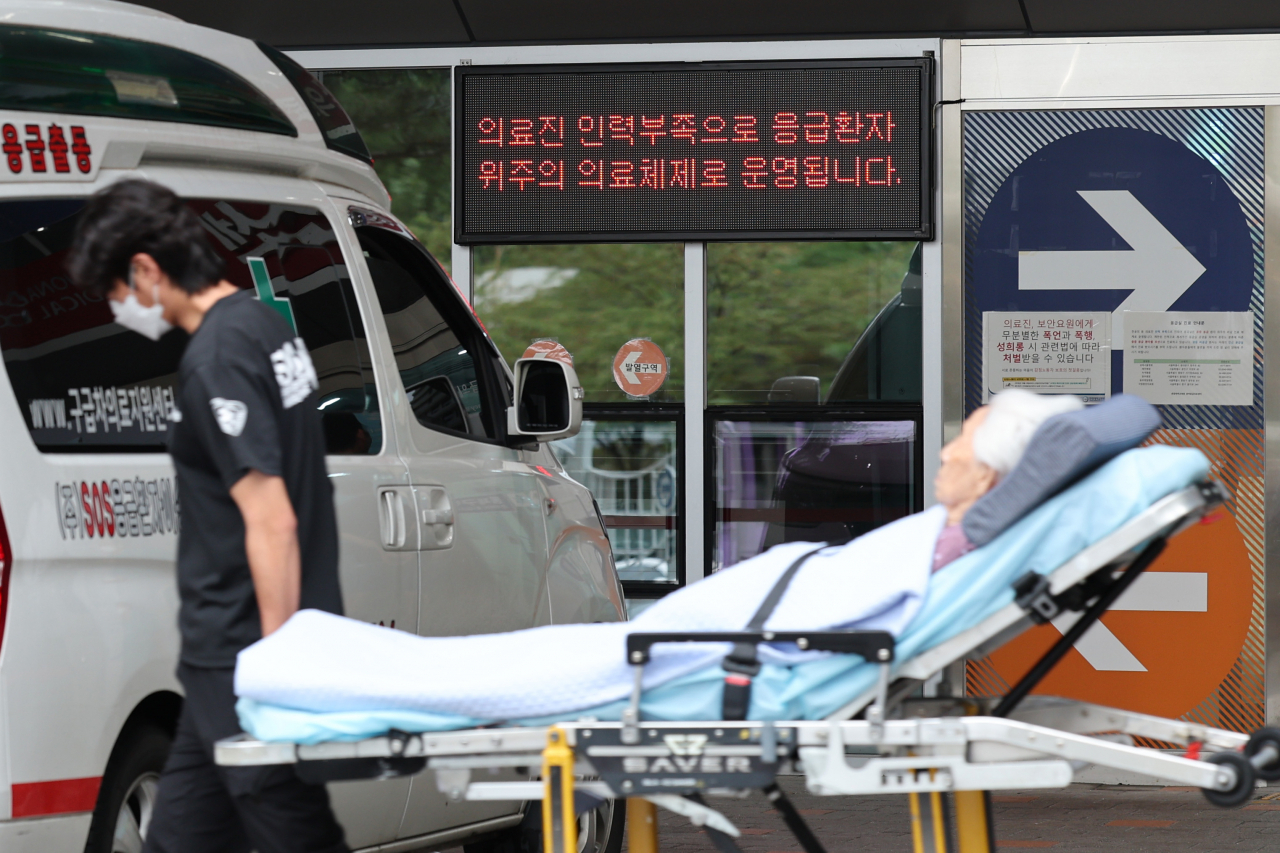Medical fees during Chuseok holidays to go up by as much as 50 percent
Published : 2024-09-14 16:05:48

Hospital and pharmacy fees from Saturday to Wednesday will cost patients 30 to 50 percent more, the Ministry of Health and Welfare said Thursday.
The extra cost is mostly due to the existing system of adding 30 to 50 percent more for medical services received during Saturdays, night times and holidays. But the ministry will also allow additional surcharges for the smaller hospitals, clinics, oriental and dental hospitals and pharmacies that stay open during the Chuseok holidays.
Specifically, all medical service providers are legally allowed to charge at least 30 percent more between 6 p.m. and 9 p.m. on weekdays, and after 1 p.m. on Saturdays, Sundays and national holidays. Anesthetic and emergency surgeries during this period cost 50 percent more.
For clinic-level medical institutions and pharmacies not part of the general hospital system, 30 percent extra fee is charged for Saturday mornings as well.
Due to the medical staff shortage caused by the online medical strike, the Health Ministry will allow hospitals to charge 50 percent -- not 30 percent -- to consultation and prescription fees for non-general hospitals, clinics and pharmacies for the Chuseok holidays only. These extra consultation and prescription fees temporarily imposed during the holidays will be shouldered by the National Health Insurance, for patients subscribed to the state-run service, so patients will not pay more.
Patients with the National Health Insurance Service typically pay 30 percent of the overall medical cost.
Fees for emergency medical services during the holidays will be significantly more during the holidays as well. South Korea is currently in the middle of an emergency response period the government designated as Sept.11-25, during which medical emergency acts cost 3.5 times more than for conventional ones.
Specifically, a government decision made in July raised the surcharge for emergency medical services to 150 percent of the conventional medical costs, up from 50 percent. The emergency medical week adds another 100 percent surcharge, meaning 250 percent additional charge is added to the base cost.
The extra surcharge due to implementation of the emergency response week will not be charged to the patients, if they have the state health insurance plan. But non-emergency patients with insurance who visit the emergency room are mandated to shoulder 90 percent of the medical bill, due to new policy enforced in August that is to take effect Friday.
http://www.koreaherald.com/common/newsprint.php?ud=20240912050821